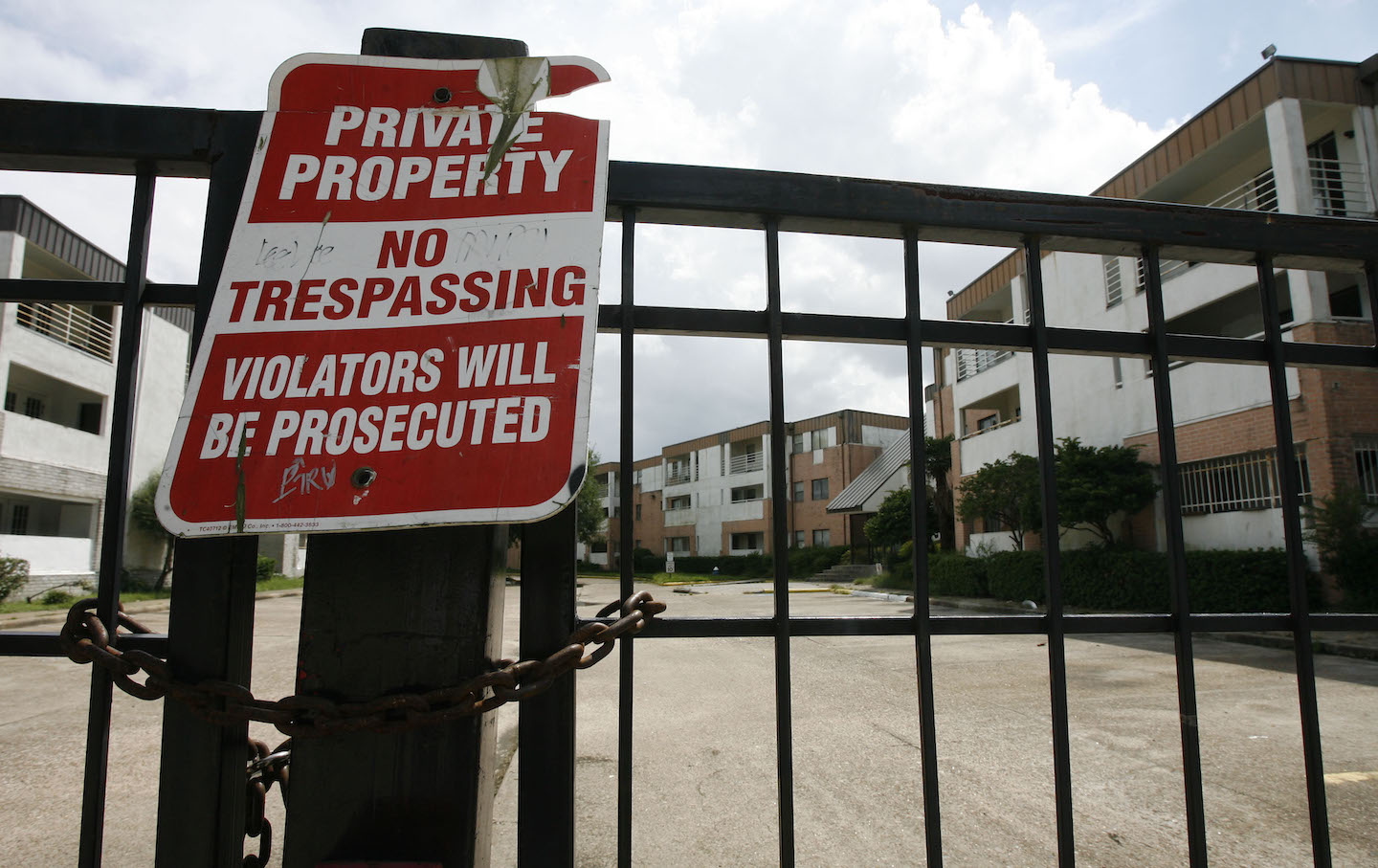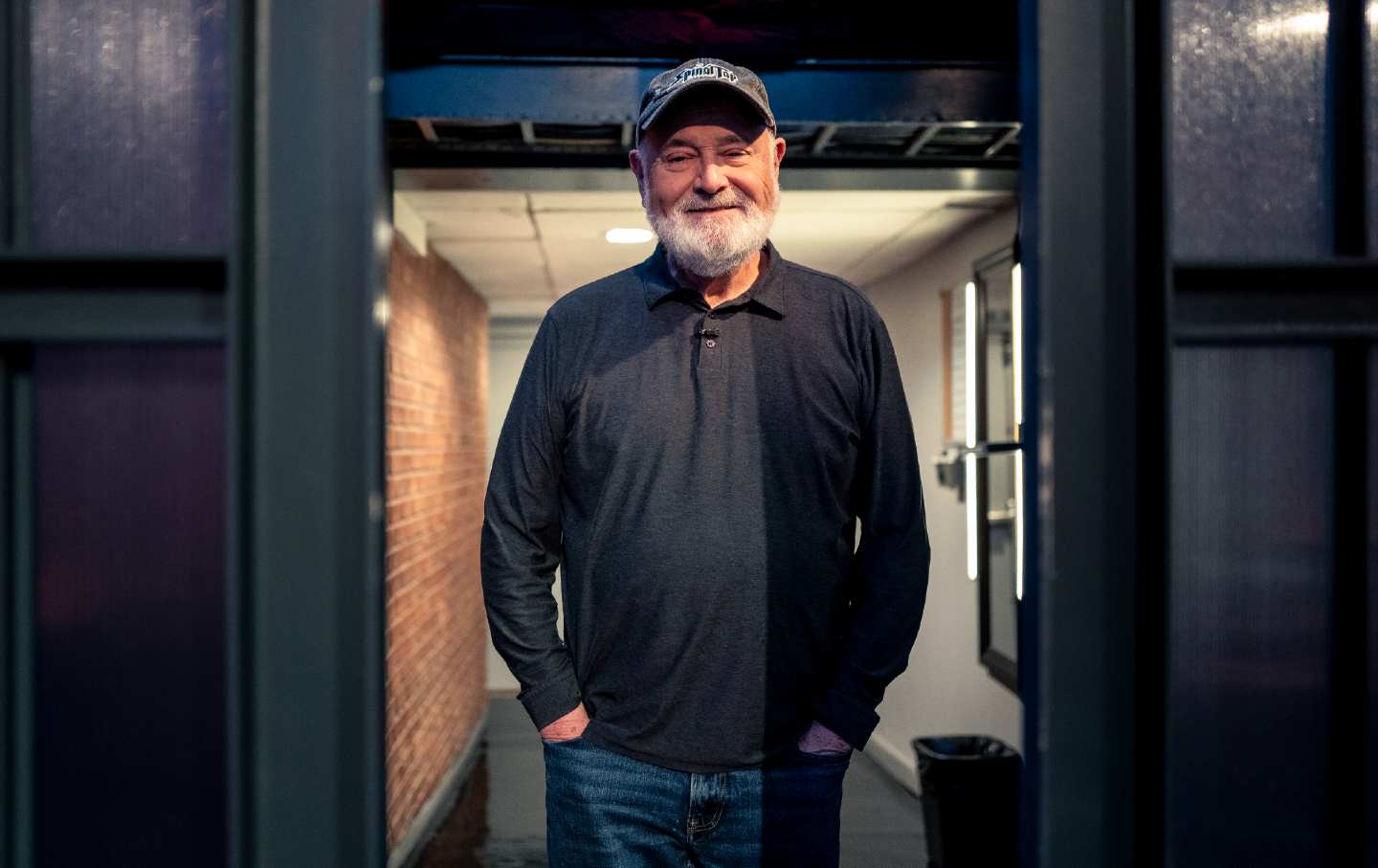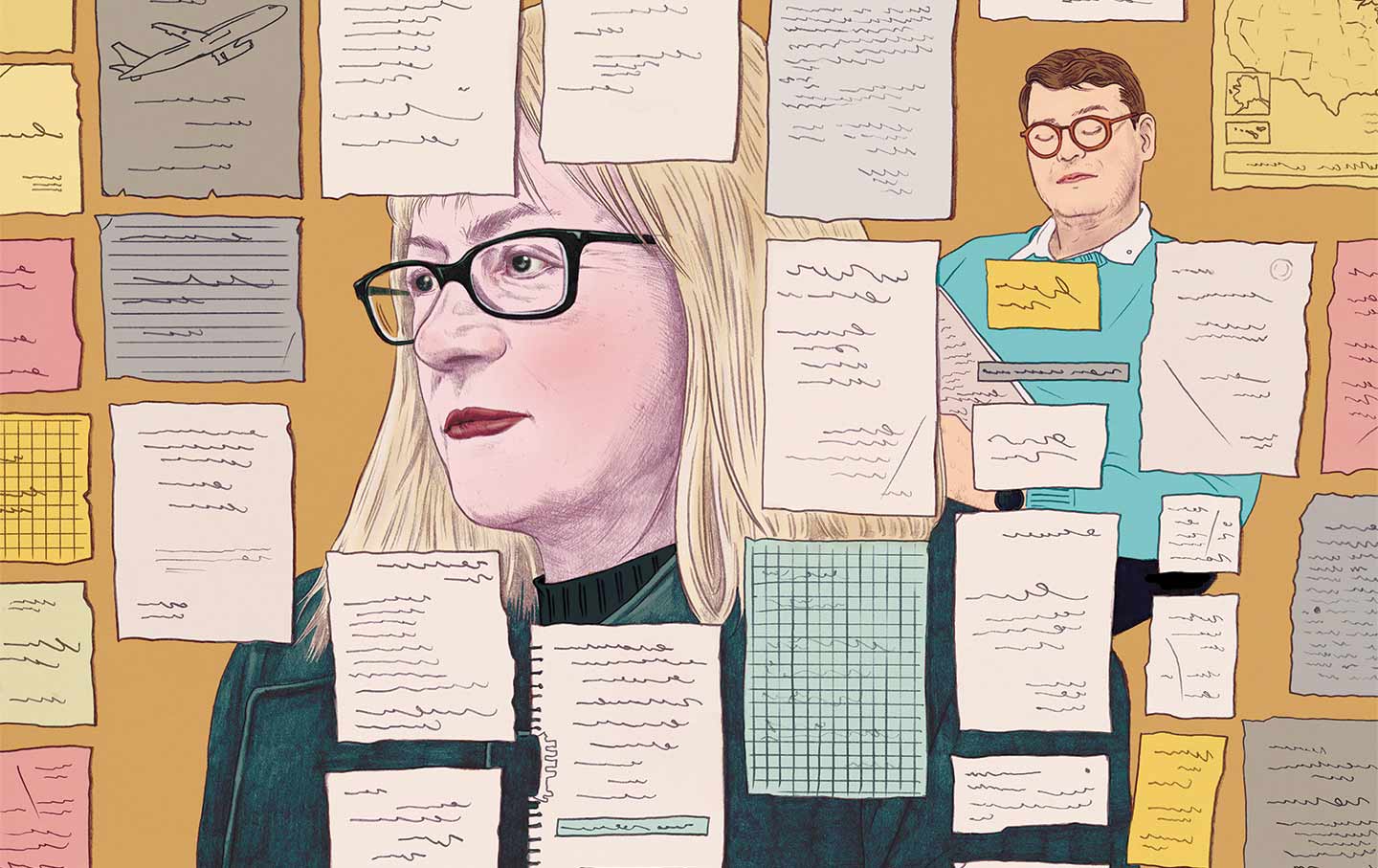The Crisis of Shelter in the United States
Housing is one the building blocks of human life. Why is it so scarce in this country?

Condemned condominiums in Houston, 2007.
(Photo by James Nielsen / Houston Chronicle via Getty Images)The summer before seventh grade, my mother and I began a nomadic journey across the Metroplex, the geography-laden name for the city of Dallas and its surrounding suburbs. My mom had filed for bankruptcy in 1982 and could never catch up. We moved from our house in the lush Oak Cliff neighborhood, where the waxy green leaves of magnolia trees and sturdy pecan trees were fed by Five Mile Creek, to a condominium complex several miles away that sat on the edge of a freeway. The next year we moved again, this time into my uncle’s three-bedroom ranch house in a completely different part of Dallas. Brown carpet and endless wood panel, but with a cold, white-tiled bathroom and a bedroom a quarter of the size of my previous one. We lied about our address so that I could stay at my junior high school. After eighth grade, we moved again. We were in a new neighborhood, blocks away from the movie theater on Jefferson Avenue where Lee Harvey Oswald huddled after he assassinated President John F. Kennedy. This time, we shoved our steadily dwindling belongings into the shell of a house that my mother imagined could be remade into a windfall.
By that point, my mother had taken up part-time work as a home appraiser, feeding a delusion that investment into real estate could transform debt into prosperity. She hired a contractor who was mostly skilled at draining her bank account. We were left with a hulking structure that had no hot water, no heat, and a kitchen infested with nutria, rodents that look like gigantic rats that made their home on the exposed pipes where the kitchen walls should have been. We ceded the kitchen to the nutria and plugged in a hot plate in another room that was used for heating up water for baths.
This during my first year of high school, when anxiety and anticipation were already cranked high. Texas winters were mild, but without heat or hot water, my morning routine—heating up small pots of water to dump into a bathtub—became interminable. After a year of living in a house that barely constituted shelter, my grandmother moved from Nashville, Tennessee, to live with us. Her income, combined with my mother’s, was enough for us to rent a house in the suburbs of Dallas. We were on the move again.
There are a handful of necessities that define what it means to be human, binding our vastly disparate experiences into one. We need some combination of food, water, air, and shelter. Of course, there are other things that may constitute a better or worse life, but these four are a baseline for human survival. And yet, in the United States, whose leaders like to imagine this nation as the absolute pinnacle of human achievement, none of these are readily available to all who need them.
I share my own story to communicate the universality of housing instability, housing insecurity, and housing precarity in the United States. This can be measured in the more than three million people formally designated as homeless or living in shelters, while millions more languish in what social scientists describe as “housing insecurity,” which is measured by unpredictable housing costs and threats to habitability, quality, and continued access. This crisis of shelter in the United States has been a feature of our society for the duration of the twentieth century and now in the twenty-first.
If crisis indicates a periodic rupture in the otherwise routine occurrence of daily events, then what we are actually experiencing, in the words of Ruth Wilson Gilmore, is the “organized abandonment” of the human and social obligation to shelter our species. This abandonment is abetted by gender and racial discrimination that has left Black women, in particular, facing eviction, homelessness, and the attendant social catastrophes that come when your housing is fleeting.
The deep roots to our housing disaster lie in the market economy that has historically regarded housing as a commodity and not a right. This process has worked to drive the price of rent well beyond the rate of wages and salaries earned by ordinary workers. From 2021 to 2022, rents across the United States for both one-bedroom and two-bedroom apartments increased by 24 percent. It has been long established that the paltry national minimum wage of $7.25 is not enough to cover the rent for a two-bedroom apartment in any state in this country. This has translated into an astonishing 51 percent of American households being “rent burdened” or spending more than 30 percent of their income on rent.
The enduring character of the organized abandonment of housing means that it’s very easy for housing insecurity to look normal. But the pandemic brought this instability to the surface. Individuals and families on the brink of eviction or foreclosure were able to see each other as mutual victims of corporate, landlord greed. Their collective endeavor might one day cohere around a different kind of consciousness of resistance.
Many stories of housing insecurity center or describe the fear and personal insecurity that gestate when it’s unclear where or what home is. This does not have to be the case. Housing should be treated as the human right it is, along with the other things like food and water which actually constitute the building blocks of human life.
Disobey authoritarians, support The Nation
Over the past year you’ve read Nation writers like Elie Mystal, Kaveh Akbar, John Nichols, Joan Walsh, Bryce Covert, Dave Zirin, Jeet Heer, Michael T. Klare, Katha Pollitt, Amy Littlefield, Gregg Gonsalves, and Sasha Abramsky take on the Trump family’s corruption, set the record straight about Robert F. Kennedy Jr.’s catastrophic Make America Healthy Again movement, survey the fallout and human cost of the DOGE wrecking ball, anticipate the Supreme Court’s dangerous antidemocratic rulings, and amplify successful tactics of resistance on the streets and in Congress.
We publish these stories because when members of our communities are being abducted, household debt is climbing, and AI data centers are causing water and electricity shortages, we have a duty as journalists to do all we can to inform the public.
In 2026, our aim is to do more than ever before—but we need your support to make that happen.
Through December 31, a generous donor will match all donations up to $75,000. That means that your contribution will be doubled, dollar for dollar. If we hit the full match, we’ll be starting 2026 with $150,000 to invest in the stories that impact real people’s lives—the kinds of stories that billionaire-owned, corporate-backed outlets aren’t covering.
With your support, our team will publish major stories that the president and his allies won’t want you to read. We’ll cover the emerging military-tech industrial complex and matters of war, peace, and surveillance, as well as the affordability crisis, hunger, housing, healthcare, the environment, attacks on reproductive rights, and much more. At the same time, we’ll imagine alternatives to Trumpian rule and uplift efforts to create a better world, here and now.
While your gift has twice the impact, I’m asking you to support The Nation with a donation today. You’ll empower the journalists, editors, and fact-checkers best equipped to hold this authoritarian administration to account.
I hope you won’t miss this moment—donate to The Nation today.
Onward,
Katrina vanden Heuvel
Editor and publisher, The Nation






